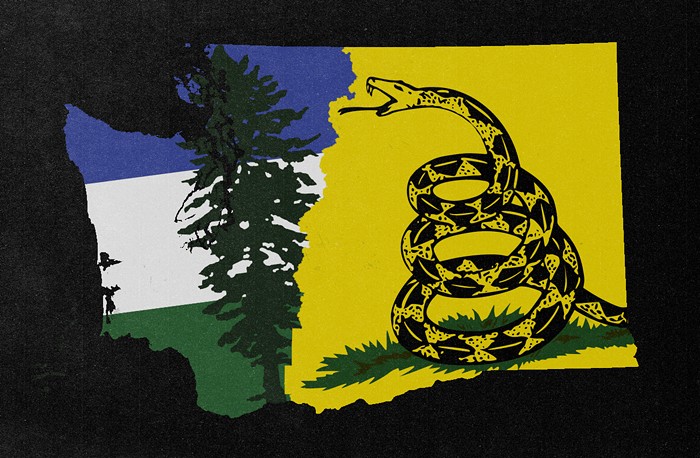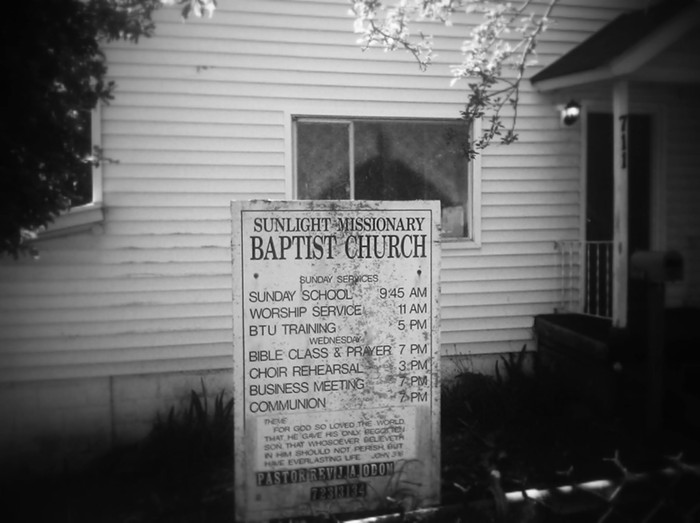
Perhaps this sounds familiar: A polarized country. An intrusion at the Democratic National Committee headquarters in Washington, DC. Agents from the FBI investigating, chasing a money trail that may, eventually, lead back to the Republican president. Trust in government at an alarming low.
This was the backdrop in 1972 when Jolene "Un-sold" Unsoeld, a driven reformer and political trailblazer, helped lead the push for the landmark Washington State Initiative 276.
At a time when little-to-nothing was being disclosed about the money behind political power in this state, the Unsoeld-backed measure aimed to restore some faith in government by bringing daylight to the financing of campaigns and political advertising. Because, as the bold letters in the statement for the initiative in the 1972 voters pamphlet read: "The people have a right to know."

Unsoeld was a founding member of the Coalition for Open Government, which brought together reform-minded Democrats and Republicans in the push to get Initiative 276 passed. "It was a remarkable collection of bright people who believed in government transparency," Unsoeld told biographer John C. Hughes as part of a fascinating state history project two years ago.
Despite opposition from sitting lawmakers, who argued that changes to the status quo would threaten privacy rights and discourage people from seeking elected office, the voters of Washington State overwhelmingly approved opening the books on political campaign funding.
Initiative 276 passed with more than 72 percent of the vote.
One result was the creation of the Washington State Public Disclosure Commission, which now provides detailed online data about campaign spending. (Though, in the early years, Unsoeld herself compiled a lot of the commission's data, using ledgers and an Underwood typewriter to create a self-published book she titled, Who Gave? Who Got? How Much?. It became hugely popular among Olympia reporters and politicians.)
In addition, Initiative 276 was the genesis of a Seattle law requiring companies that sell and disseminate political advertising—including companies that didn't exist in the 1970s, like Google and Facebook—to disclose data about all political ad purchases targeting our local elections. The Seattle law is a mirror of a statewide law, created by the Unsoeld-backed initiative, that enacted a "commercial advertisers' duty to report" for elections all over Washington State.
As former Chair of the Federal Election Commission Ann Ravel told me recently, these were some rather "forward-thinking" laws.
Though the tech giants aren't currently complying with the laws, Seattle Ethics and Elections Commission Director Wayne Barnett—himself an heir to the legacy of I-276—is telling Facebook and Google they need to start complying by February.

The fight for passage of Initiative 276 was just one chapter in Unsoeld's amazingly full life, which you really should read more about here.
She grew up in a Republican family but didn't share their conservative views on race relations and social programs. Once, when she won an essay contest put on by the Daughters of the American Revolution, she refused to accept the recognition because, according to the state biography, she'd "discovered the DAR had barred Marian Anderson, the brilliant black contralto, from singing at Constitution Hall in 1939."
Jolene became a mountaineer and, in 1955, was the first woman to climb the north face of Grand Teton in Wyoming. She met her husband, Bill "Willi" Unsoeld, in a mountaineering club, announced their engagement at the summit of Mt. St. Helens, climbed to the top of Mt. Hood with him two days later, and married him beside the Columbia River not long after that.
She raised their four children as the family moved with Bill's education and work, from divinity school at Berkeley to the faculty at Oregon State College and then onward to Nepal with the newly-formed Peace Corps. There, Bill and a climbing partner became the first Americans to summit Mt. Everest using the "West Ridge" approach. He lost nine toes to frostbite in the process.
When the Evergreen State College opened near Olympia, Bill joined the faculty as director of outdoor education and Jolene, looking for an outlet for her frustration at the state of 1970s-era American politics, turned her eyes on the state capitol. She became a self-described "professional meddler."

In Olympia, Jolene Unsoeld pushed for open meetings and the passage of Initiative 276. She volunteered at the newly-formed Public Disclosure Commission and put out her annual Who Gave? Who Got? How Much? book.
She experienced searing tragedy when, in 1976, her daughter, Devi, died while on a climbing trip. Three years later, her husband Bill died in an avalanche on Mt. Rainier.
"Learning to live beyond the grief toughened me up for running for office," Jolene told her state biographer.
She ran as a Democrat for a seat representing the Olympia area in the State House of Representatives—and won. Then, in 1988, she won a seat representing the region in Congress. She fought for reproductive rights and environmental regulations, becoming known for choosing the conservationist side in the Spotted Owl wars of the period. But during the "Republican Revolution" of 1994, she was among the Democrats swept out of office.
Of her work on behalf of transparency in politics, Unsoeld told her state biographer: “There is no substitute for an informed, participatory public. It just takes dogged, dogged work, and we’re all tired—our age group particularly—so we’ve got to get those youngsters going. If you try to stay on the sidelines, you’re just deceiving yourself so you have to find that inner strength to keep going.”















